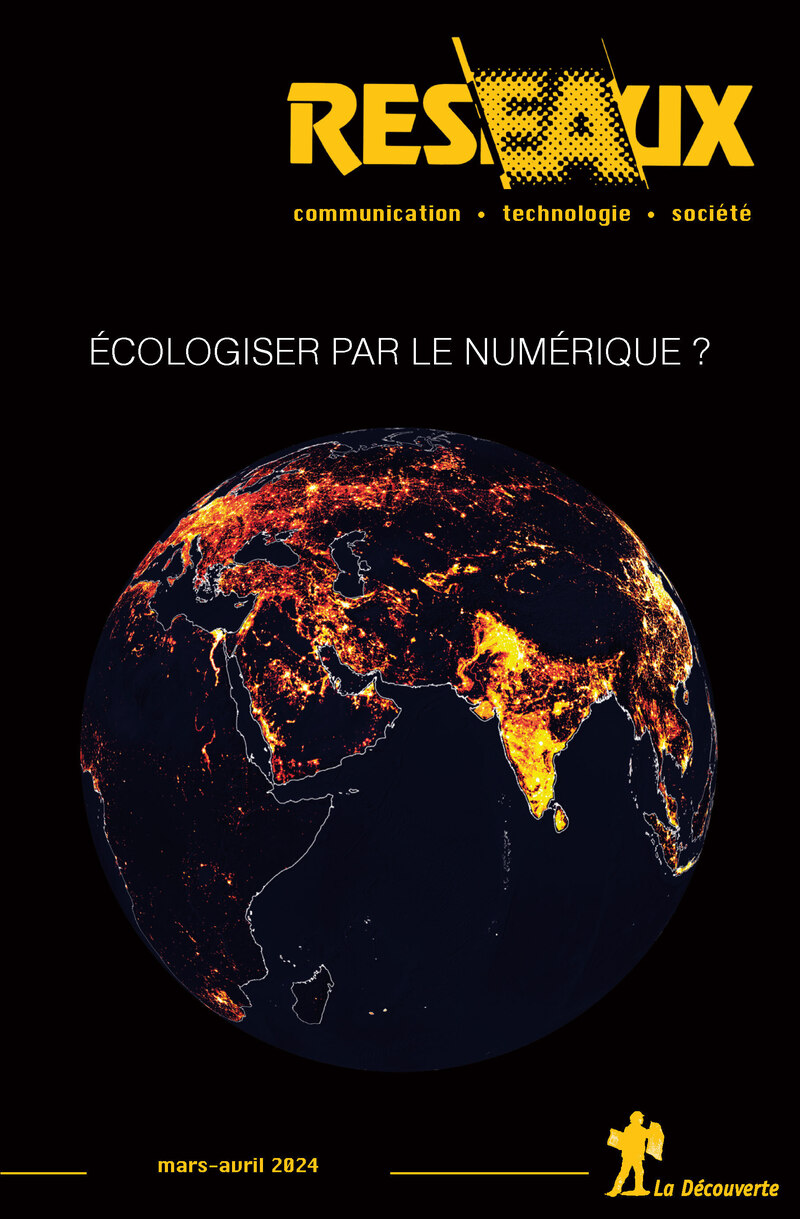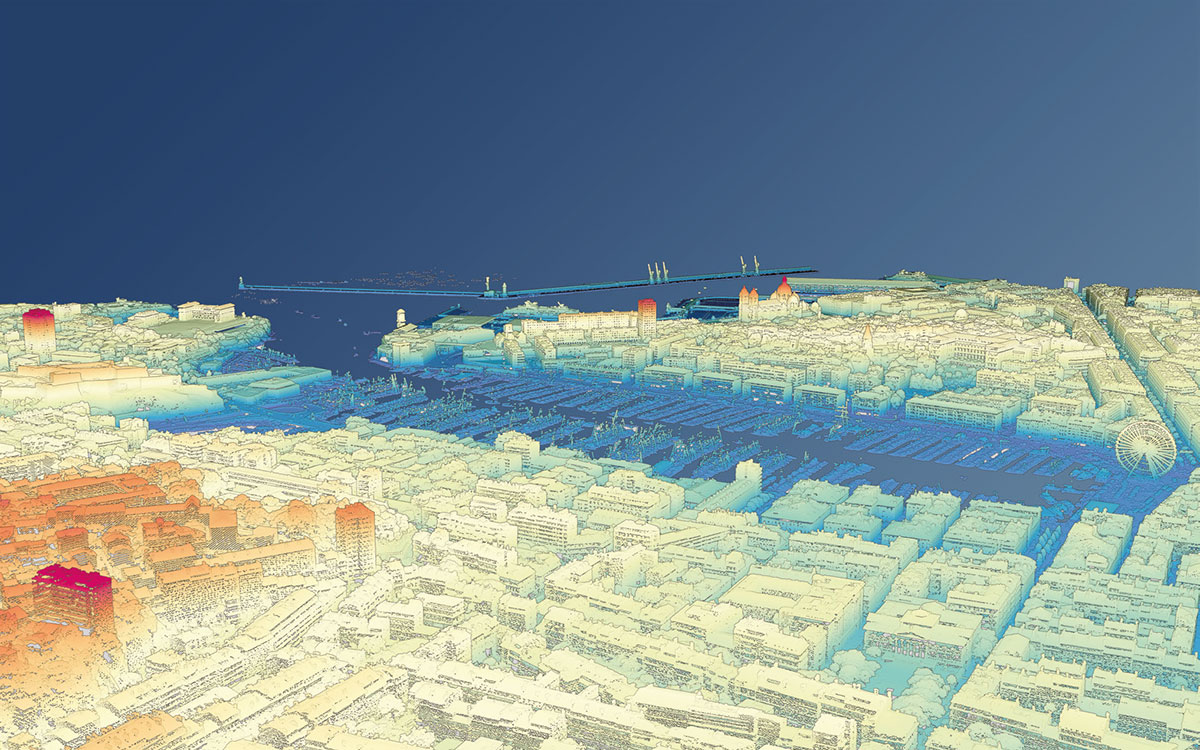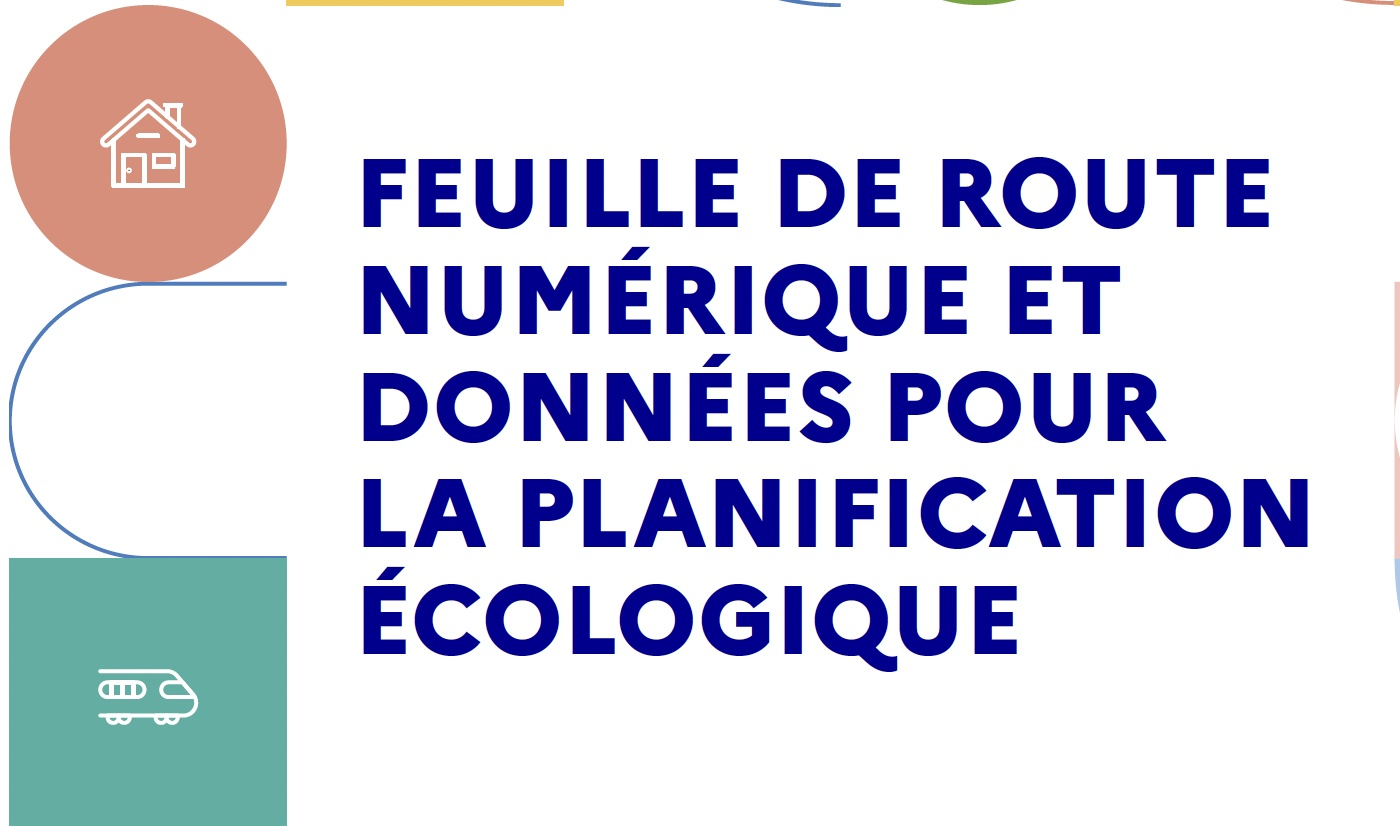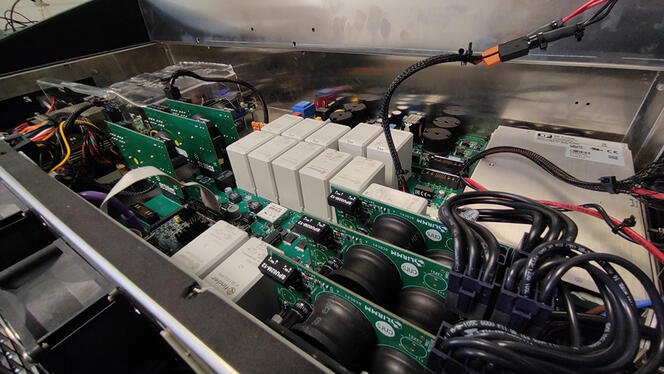Foreword
At a time when the environmental critique of digital technology is gaining considerable momentum, a large number of players intend to put digital technologies at the service of the ecological transition.
"We mobilize computing technologies to reduce pollution by optimizing industrial production, or by limiting agricultural practices that impoverish soils or contaminate the environment. We equip environmental policies with measurement tools - for biodiversity, carbon emissions, atmospheric or aquatic pollution, soil carbon storage capacities, etc. - to plan and steer the ecological transition. - to plan and steer the ecological transition. Instruments are made available to consumers in the form of applications, so that they can adopt behavior that is less harmful to the environment. Digital platforms are being set up to link consumers and producers of agricultural goods in short circuits, and to encourage car-sharing and other less polluting practices.
This issue of Réseaux takes a closer look at these approaches, which Sylvain Parasie and Sébastien Shulz, who coordinated this issue, describe as " greening through digital technology". A priori paradoxical, this "greening through the digital" raises a series of questions to which the investigations in this issue provide some answers: to what extent can the digital contribute to reducing environmental damage? What are the epistemological, political and social implications? What kinds of ecological transitions in our economies are supported by these technology-based approaches?
Overview of social science research
Sylvain Parasie, researcher at Médialab, and Sébastien Shulz, postdoctoral researcher at the Université Technologique de Compiègne, open this dossier with an overview of social science research, structured around the four main ways in which digital technologies are equipping the ecological transition: the computerization of the environmental question; the instrumentation of ecological mobilizations; the rationalization of production and consumption systems; the experimentation of economic alternatives to the productivist logic.
The two authors distinguish three sets of questions that are emerging for the social sciences.
- The first set of questions concerns the information infrastructures that make the environment visible. "These play a crucial role, in conjunction with the worlds of science and technology, in uncovering climate change, pollution affecting the atmosphere, soil and oceans, and the erosion of biodiversity.
- A second set concerns the role of digital instruments in governing the ecological transition. "Mobilized to know, monitor and govern the environment, do technologies enable publics to make environmental problems visible and to organize themselves to deal with them? Are they likely to encourage citizens and consumers to adopt more virtuous environmental behavior? On what representations of individual action are these instruments based?"
- The final set of questions concerns the way in which digital technologies are mobilized to initiate the ecological transition of our modes of production and consumption. How do these players (whether economic or activist) go about "scaling up" their alternative technologies in the face of the hegemony of digital capitalism? " And in turn, what does this imply about the transformation of commercial discourses, business models, work organization or even advocacy activities, from large firms to start-ups?"
Jean-Baptiste Garrocq, a doctoral student at Sciences Po's Medialab, uses the ethnography of a network of alternative measures of air pollution to examine how micro-sensors are used to form causes. To understand the conditions under which these causes are formed, he analyzes "the ways in which the ordinary sense of justice of individuals or collectives and the production of data by micro-sensors are articulated". Starting from the moral attitudes that individuals adopt in relation to these objects, he identifies two forms in which the causes are deployed: the alert and the case.
Robin Leclerc, a doctoral student at INRAE's Ecosystems and Societies in Mountains Laboratory, has investigated a seemingly modest climate policy instrument - a spreadsheet that offers, for each French commune, a complete diagnosis of soil carbon sequestration capacities - to study the formation of a soil carbon public at local level. His investigation shows that this tool, designed at national level, is finding a wider audience than had been anticipated, formed of "carbon engineers", who are using it in unanticipated ways, and sometimes at the cost of invisibilizing scientific knowledge about soils.
Jeanne Oui, post-doctoral researcher at Université Paris-Dauphine, investigates the environmental promise associated with "precision agriculture", according to which the use of digital technologies would make it possible to limit environmental pollution by optimizing agricultural production. By studying several French agronomic communities, the author shows that precision agriculture does not escape the dominant productivist and reductionist prism, and contributes to bringing agronomic technoscience closer to its commercial applications.
Jean Tassin, a doctoral student in sociology at ENS Lyon, shifts our focus, offering an ethnography of the "return to the land" of young Chinese entrepreneurs. Against a backdrop dominated by food scandals and government plans for transition, these individuals are using e-commerce platforms to sell organic products presented as healthier. The survey shows that "digital technology is playing a major role in the recomposition of food trust in China, but that the phenomenon of 'back to the land' is paradoxically contributing to the processes of depaysanization and rural differentiation engendered by the agrarian reforms of the last forty years".
Sébastien Shulz examines the construction of the car-sharing platform market and seeks to understand how car-sharing, which represented an informal and supportive practice, was constituted as a commercial solution to support the ecological transition of the mobility sector. The author reconstructs the process by which the French state favored platform capitalism, helping to build an economy of capture. He concludes with a discussion of the tension between the state's objectives of greening the mobility sector, and its support for capitalist platforms whose model is likely to generate "rebound effects".
Aurélien Béranger, a doctoral student at Costech, Université de Technologie de Compiègne, has been investigating communities that build small wind turbines to meet their energy needs autonomously. These people deploy a particular relationship to matter, which the author calls the "politicization of the smallest part". "The great originality of these low-tech movements is that they strive for the greatest possible sobriety, with the least possible use of digital or high-tech technologies. This is accompanied by a large number of tensions between values and practices, which the players manage to reduce through compromise". Aurélien Béranger shows that, while ecologization can be achieved away from digital technology, " this distance can only be maintained in relative terms, and at the cost of constant mobilization".
Contents
- Sylvain Parasie, Sébastien Shulz: Digital technology at the service of ecological transition? An overview of social science research
- Jean-Baptiste Garrocq: Challenging pollution from around the corner. Forms of criticism within a network of air pollution micro-sensors
- Robin Leclerc: Soil carbon and its public. Aldo as a tool for local climate policy?
- Jeanne Oui: Precision agriculture and environmental change
- Investigating the epistemology of an agricultural model based on digital data
- Jean Tassin: Peasant e-commerce platforms in China. An ethnographic survey of a digital "return to the land
- Sébastien Shulz: The commercial capture of carpooling in France. How policies to green mobility promote platform capitalism
- Aurélien Béranger: The politicization of the smallest part. Tensions between low-tech and high-tech in small-scale self-built wind turbine communities
Référence :









